Despite notable achievements in advancing girl child education, girls continue to face challenges in accessing certain fields within Technical and Vocational Education and Training (TVET).
Male counterparts dominate areas such as automotive, mechanical, and electrical engineering, largely due to entrenched stereotypes, societal norms, and cultural expectations.
This was highlighted by Lily Gyimah, Deputy Director-General of Management Services at the Ghana TVET Service, during an event marking the International Day of the Girl at Ada Technical Institute in the Ada East District.
Speaking on behalf of the Director-General, she stressed the importance of equal opportunities for girls in TVET.
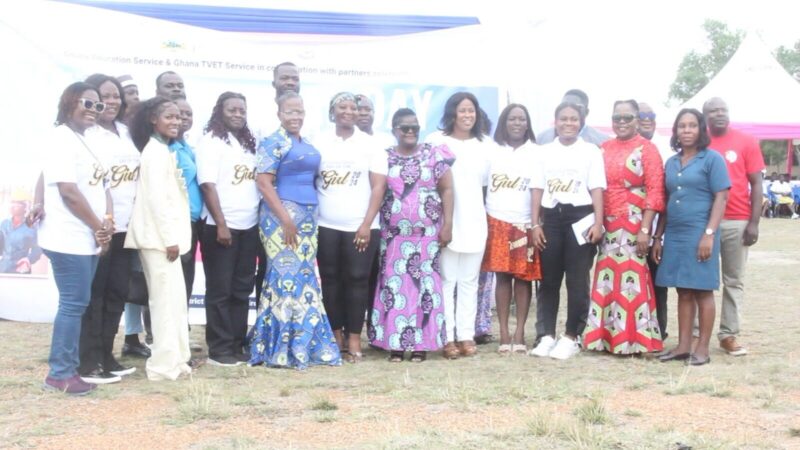
“We firmly believe that every girl, regardless of her background, has the right to dream, learn, and excel in any field she chooses,” she stated.
“TVET has proven to be a powerful catalyst for economic independence, innovation, and sustainable development, equipping individuals with practical, hands-on skills vital to tomorrow’s industries. TVET is not just about acquiring a trade—it’s about reshaping their future.”
Ms Gyimah noted that girls who engage in TVET serve as role models, driving economic and social transformation within their communities.
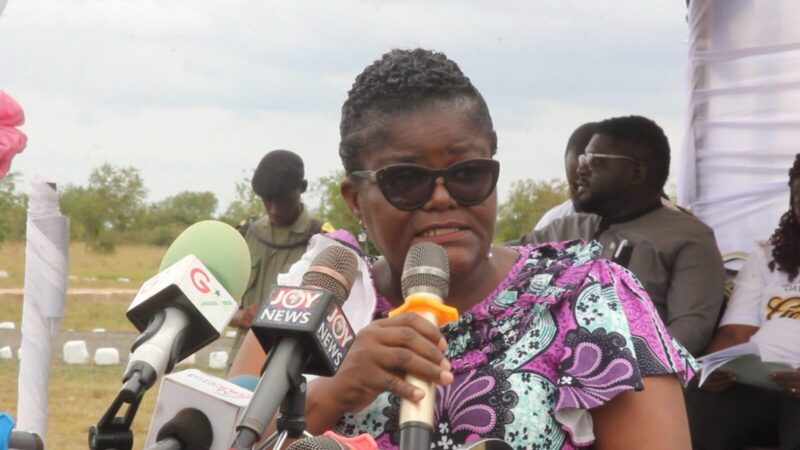
The event, themed “Girls’ Vision of the Future: Better Prospects in TVET,” highlighted the sector’s immense potential for national development.
Key stakeholders, including the United Nations Children’s Fund (UNICEF), FAWE, CAMFED, the British Council, and other partners, acknowledged the challenges girls face in pursuing their dreams within TVET.
Gifty Asiedu, Director of the Girls Education Unit at the Ghana Education Service, also emphasized the importance of collaboration.
Representing the Director-General, she stated, “Activities like these will help dispel myths and misconceptions about TVET and highlight its numerous benefits for girls.
"As we celebrate the International Day of the Girl 2024, let’s reaffirm our commitment to promoting gender equality and empowering girls through education and skills development.”
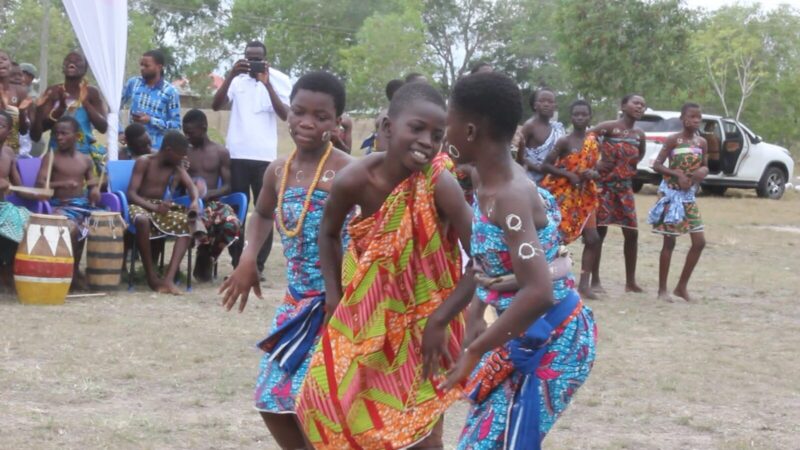
She called on parents, teachers, community leaders, and policymakers to create a supportive and inclusive environment for girls to thrive in TVET.
Faustina Blewusi, District Director of the National Commission for Civic Education in Ada East, delivered the keynote address, representing the District Chief Executive.
She urged girls to embrace leadership roles. “Girls are not just the leaders of tomorrow. We are the leaders of today.
"We must strive to create spaces where girls can lead and encourage each other to take on leadership roles in schools, clubs, and organisations.”
Ms Blewusi believes empowering girls will foster a generation of confident young women unafraid to make decisions that affect their futures.
The chairperson of the event, Louisa Akpoto, representing the Queenmother of Ada, Naana Adiki Manyeyo Adi I, expressed concern over the physical, emotional, and sexual violence girls face, urging them to be assertive and calling for greater collaboration to help girls achieve their goals, especially within TVET.
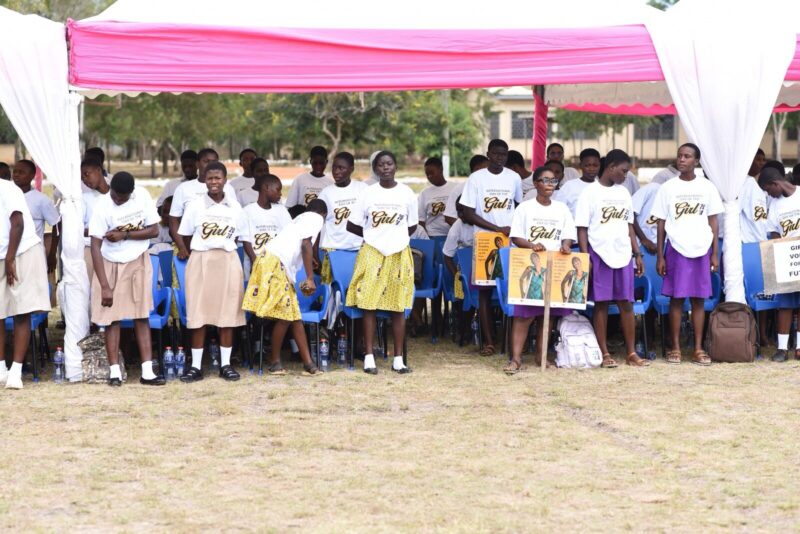
Member of Parliament for Ada, Comfort Doyoe Cudjoe, criticised Ghana’s education system for its focus on grammar over technical education, sharing her experience in China, which prioritizes technical skills.
Senior Programme Officer for CAMFED Ghana, Diana Lugutuah, shared that since 2019, CAMFED has supported over 3,000 girls in pursuing TVET and will continue to shape the future of girls in Ghana.
FAWE Ghana’s National Coordinator, Richard Amoani, announced that 600 girls and boys will receive support for TVET tertiary education, while UNICEF Education Specialist Christopher Nkrumah stressed the need for urgent action to increase girls’ participation in TVET.
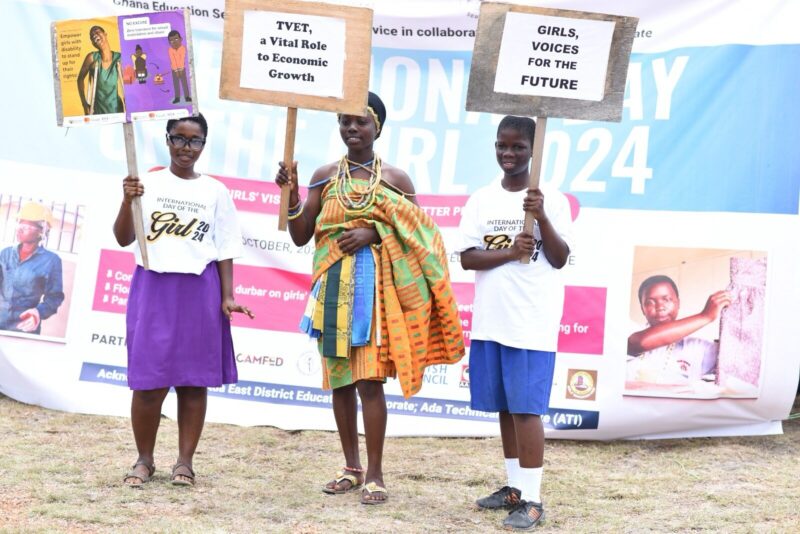
Currently, only 26% of TVET students are female. Nkrumah noted that UNICEF has been instrumental in developing policies and capacity-building initiatives to prevent schoolgirl pregnancies, promote inclusive education, and create safer TVET environments.
The event featured a float, cultural performances, and poetry recitals, with students from Ada Technical Institute and other local schools joining in the celebrations.
Latest Stories
-
Dr. Ayensu-Danquah defends professorship, stating 15 years of teaching surgery
2 hours -
Access Bank honoured with two prestigious awards at 2025 HESS Awards
2 hours -
A/R: Aspiring nurse killed in Denase gun attack
2 hours -
Oti Region to get university within my tenure – Mahama reaffirms pledge
2 hours -
Daughter killed in father’s arson attack over sex denial
4 hours -
NPA Scandal: Four suspects remain in custody after failing to meet bail conditions
5 hours -
NPP to open 2028 flagbearer nominations on July 29
5 hours -
Sam George to open Pan-African AI Summit 2025
6 hours -
NDC opens nominations for Akwatia parliamentary primaries on July 28
6 hours -
Guinness Ghana DJ Awards opened new doors for my career – DJ Pho
7 hours -
Mohammed Sukparu commits to advancing Ghana’s Artificial Intelligence agenda
7 hours -
‘What is coding?’ – Question raises eyebrows during Deputy Communication Minister-nominee’s hearing
7 hours -
WAFCON 2024: Ghana’s Black Queens claim third-place after penalty win over South Africa
7 hours -
Ghana celebrates 100-year-old WWII veteran Joseph Ashitey Hammond
8 hours -
Measures announced in Mid-Year Budget Review fully in line with programme objectives – IMF
8 hours

